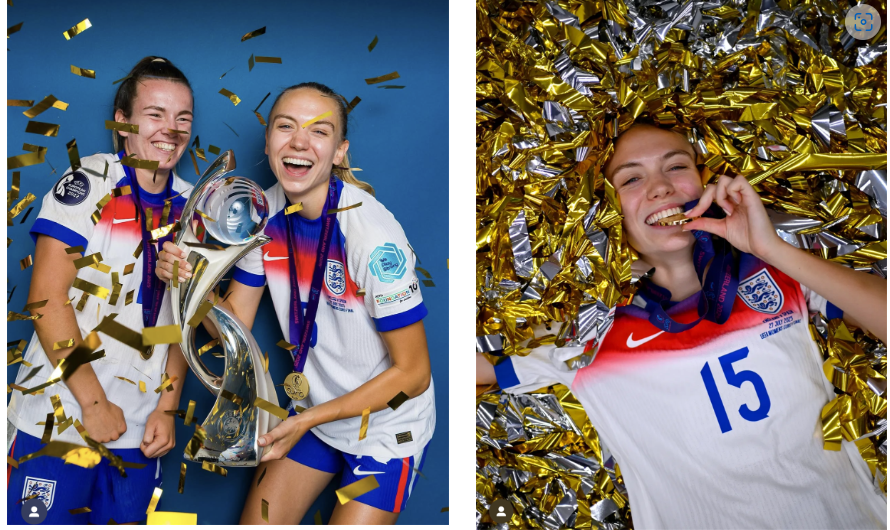Current Manchester Metropolitan University student Esme Morgan and graduate Lauren Hemp played a pivotal role in England’s triumphant UEFA Women’s Euro 2025 final in Basel.
England capped another tremendously successful tournament with a 3–1 win on penalties over Spain, following a 1–1 draw.
Lauren, now a regular starter for England in major tournaments, featured in all seven of England’s matches and scored in the group-stage win over the Netherlands. Her consistent presence on the left wing brought pace and attacking creativity throughout the campaign.
Esme, making her senior tournament debut this summer, became increasingly central to England’s defensive structure. Initially used as a substitute, she came on during the quarter-final against Sweden in a match that saw England come from 2–0 down to win on penalties. She went on to start the semi-final against Italy.

Both players currently represent Manchester City at club level and have successfully combined elite football with academic progression, something Esme says has been made possible by the structure and flexibility of her Sport and Exercise Science course.
“The course has opened up a lot of potential pathways for me, in coaching, psychology, performance analysis and more. And the flexibility to study alongside football has been invaluable,” she said
The involvement of both a current student and a recent graduate in a major international tournament victory reflects MMU’s continued focus on high-performance sport, athlete support and academic accessibility through its Institute of Sport which supports athletes from grassroots to elite levels through research, education and practical innovation.
In December 2024, MMU further strengthened its position in female sport with the launch of the Centre of Excellence for Women in Sport, the first of its kind in the UK.
Based within the Institute of Sport and developed in partnership with the UK Sports Institute, the Centre focuses on research and applied practice around female health and performance, addressing long-standing gaps in training, medical support and wellbeing for women across all levels of sport.
Led by Professor Kirsty Elliott-Sale, the Centre includes collaboration with high-profile contributors such as Dame Sarah Storey, Britain’s most decorated Paralympian.
“We’re bridging the gap between lab-based research and what happens on the field,” said Kirsty. “The goal is to improve performance and health outcomes not just for elite athletes but for women in sport and exercise across society.”
Both Lauren and Esme have spoken about the wider role sport can play beyond competition, including building community, improving wellbeing and promoting inclusion.
Their contributions to England’s EURO 2025 victory highlight not only the strength of the national team, but also the importance of continued investment in athlete education, wellbeing and career development, areas MMU remain committed to through their teaching, research and partnerships.